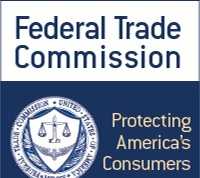IN LETTER, KAINE URGES EPA TO CLARIFY KEY MEASURES OF THE CLEAN WATER RULE
WASHINGTON, D.C. – November 4, 2015 – (RealEstateRama) — U.S. Senator Tim Kaine signed a letter that calls on the Environmental Protection Agency (EPA) and the U.S. Army Corps of Engineers to clarify the agricultural exemptions and provide more concise guidelines on compliance with EPA-issued water rules, instead of undermining protections for streams and wetlands. While the letter, co-signed by U.S. Senators Angus King, Bill Nelson, Mark Warner, Dianne Feinstein, Brian Schatz, Chris Coons, Tom Carper, Jon Tester, Michael Bennet and Amy Klobuchar, states that elimination of the entire rule would not be the appropriate course of action, it does acknowledge that the rule should be reviewed.
“We all agree that clean water is critical and that your agencies have the important role of protecting our streams and waterways as mandated under the landmark Clean Water Act,” the Senators wrote. “We recognize that the task of clarifying the definition of ‘Waters of the United States’ is an important, yet complicated, undertaking. … We call on the EPA and Army Corps of Engineers to provide clearer and concise implementation guidance to ensure that it the rule is effectively and consistently interpreted. Farmers, ranchers, water utilities, local governments, and contractors deserve this clarity and certainty.”
The letter addresses concerns that farmers in Virginia have shared with Kaine about the ambiguity of the EPA’s Clean Water Rule as currently written and how it may create uncertainty that could have a detrimental impact on farming operations. However, instead of voting to proceed with legislation that would dismantle the rule in its entirety and undermine key environmental protections, Kaine is calling on the EPA to work with farmers to get the rule right.
Full text of the letter is below:
November 3, 2015
The Honorable Gina McCarthy
Administrator
Environmental Protection Agency
1200 Pennsylvania Avenue, N.W.
Washington, DC 20460
The Honorable Jo-Ellen Darcy
Assistant Secretary of the Army for Civil Works
U.S. Army Corps of Engineers
108 Army Pentagon
Washington, DC 20310
Dear Administrator McCarthy and Assistant Secretary Darcy:
We are writing in regards to the Clean Water Rule: Definition of ‘Waters of the United States’ Final Rule, and the need for the Environmental Protection Agency and Army Corps of Engineers to better clarify the implications of this final rule.
We all agree that clean water is critical and that your agencies have the important role of protecting our streams and waterways as mandated under the landmark Clean Water Act. We recognize that the task of clarifying the definition of ‘Waters of the United States’ is an important, yet complicated, undertaking.
We all provided suggestions and relayed concerns from our constituents during the rulemaking process. We were pleased that some of these concerns were addressed in the final rule. We believe the Federal Water Quality Protection Act offered by Senator Barrasso undermines the ability to adequately safeguard our precious waterways and undercuts a need for clarity on the appropriate jurisdiction of the Clean Water Act. Given the current stay placed on this rule by the Sixth Circuit Court of Appeals, this is also the wrong time for a legislative approach.
However, while we cannot currently support the Federal Water Quality Protection Act, we believe the EPA and Army Corps of Engineers can and must do better to address the legitimate issues that have been raised in regards to the implementation of this rule. We call on the EPA and Army Corps of Engineers to provide clearer and concise implementation guidance to ensure that it the rule is effectively and consistently interpreted. Farmers, ranchers, water utilities, local governments, and contractors deserve this clarity and certainty. Should the EPA not provide this clarity or enforce this rule in a way that erodes traditional exemptions, we reserve the right to support efforts in the future to revise the rule.
We look forward to working with you to sufficiently address the concerns of our constituents in regards to the Clean Water Rule.
Sincerely,














